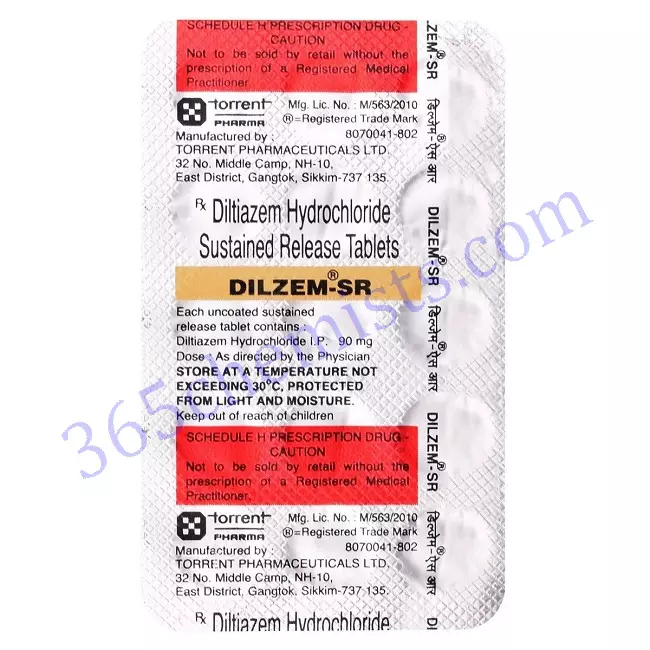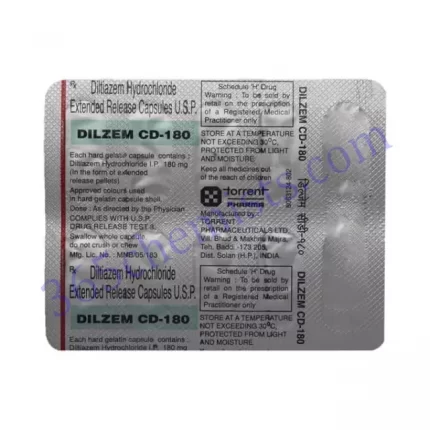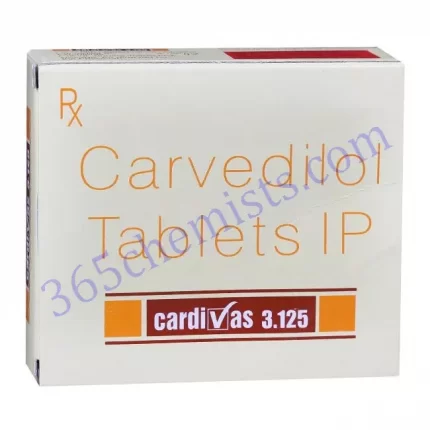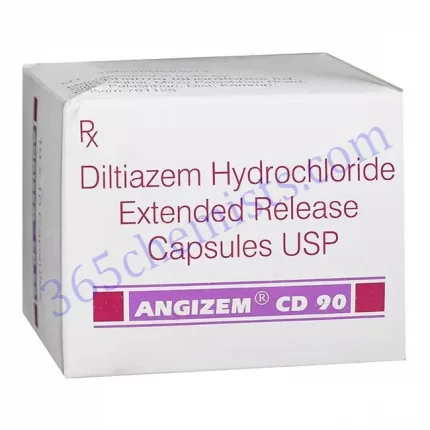Introduction:
Diltiazem is the active ingredient in the drug known as Dilzem SR Tablet. It is a member of the calcium channel blocker class and is typically prescribed to treat different cardiovascular conditions. In order to ensure a controlled release of the medication over an extended period of time, Dilzem SR is designed to provide a sustained-release effect.
Composition and Mechanism of Action:
Diltiazem 90mg is the amount found in each Dilzem SR Tablet. Diltiazem functions by preventing calcium ions from entering smooth muscle cells in the heart and blood vessels. This causes the blood vessels to relax, causing the arteries to enlarge and the blood flow resistance to decrease. It works well to treat hypertension and some heart conditions because it lowers blood pressure and eases the strain on the heart.
Indications:
It is recommended to use Dilzem SR Tablet to treat a number of cardiovascular conditions, including:
- Dilzem SR helps to lower blood pressure and keep it within a normal range, lowering the risk of complications related to hypertension. Hypertension (High Blood Pressure).
- Stable angina pectoris, which is characterised by chest pain or discomfort brought on by a decrease in blood flow to the heart muscle, is treated with it.
- Supraventricular Arrhythmias: Atrial fibrillation and atrial flutter are two examples of irregular heart rhythms that originate above the ventricles that may be treated with Dilzem SR.
- Dilzem SR is a medication that can be used to treat chronic stable angina, a condition in which episodes of chest pain are triggered by physical activity or stressful situations.
Related Product
Dilzem SR Tablet
Dilzem 30 Tablet
Dilzem 60 Tablet
Dilzem CD 180mg Capsule
Dilzem CD 120mg Capsule
Dosage and Administration:
Depending on the patient’s condition and the physician’s recommendation, the dosage of Dilzem SR Tablet may change. Depending on how severe the condition is, it is typically taken orally once or twice daily. The tablet shouldn’t be chewed or crushed; it should be swallowed whole with a glass of water. It is crucial to adhere to the healthcare provider’s instructions regarding the recommended dosage and course of treatment.
Contraindications:
There are some situations where Dilzem SR Tablet shouldn’t be used, including:
- Hypersensitivity: People who have allergies to Diltiazem or any of the other ingredients in the tablet should refrain from taking it.
- Bradycardia: Dilzem SR is not recommended for people who have a very slow heartbeat (bradycardia), as well as for people who have sick sinus syndrome or second- or third-degree atrioventricular blocks, among other heart conditions.
- Acute Myocardial Infarction: Patients who have recently experienced a heart attack or cardiogenic shock should not be given this medication.
- Hypotension: People with low blood pressure should not take Dilzem SR.
Side Effects:
Dilzem SR Tablet side effects are possible, just like with any medication. Typical negative effects could be:
Headache
Dizziness
Flushing
(Swelling) Edoema
Constipation
nausea or diarrhoea
fatigue or exhaustion
It’s important to remember that not all potential side effects are covered by this list. Get medical help right away if you experience any strange or serious side effects.
While Dilzem SR Tablet is typically well tolerated, some people may experience some side effects. Although these side effects are frequently minor and transient, it is crucial to get medical help if they last or become bothersome. The following are examples of Dilzem SR Tablet side effects:
- Headache: Some people who take Dilzem SR might get headaches. These headaches typically don’t last long and go away on their own.
- Dizziness or lightheadedness can happen, especially when getting out of a sitting or lying position quickly. In order to reduce the risk of falling, it’s crucial to stand up slowly.
- Flushing: Dilzem SR may occasionally result in a warm sensation or skin flushing. Typically, this adverse effect is transient and unharmful.
- Some people may experience edoema, or swelling, in their hands, ankles, or feet. Peripheral edoema, which is what this is called, is brought on by fluid retention. If you see persistent swelling or swelling that is getting worse, it’s important to let your doctor know.
- Constipation, nausea, and vomiting are a few gastrointestinal side effects that Dilzem SR may produce. Most of the time, these symptoms are minor and manageable with dietary changes or over-the-counter medications. Constipation can be relieved by eating a diet high in fibre and drinking lots of water.
- Feelings of Fatigue or Tiredness: Some people who take Dilzem SR may feel tired or exhausted. It’s crucial to get enough sleep and speak with your doctor if your fatigue is severe or ongoing.
Precautions and Warnings:
Prior to beginning Dilzem SR Tablet treatment, it is crucial to take into account the following warnings and precautions:
- Hypotension: The drug may lower blood pressure, resulting in symptoms like lightheadedness or fainting. Exercise caution, especially in the beginning stages of treatment.
- Kidney and Liver Function: People who have poor kidney or liver function should use this medication with caution. The parameters of the kidneys and liver may need to be monitored frequently.
- Drug Interactions: Beta-blockers, digoxin, and some antiarrhythmic medications, among others, may interact with Dilzem SR. To prevent potential interactions, it is crucial to let the healthcare provider know about every medication being taken.
- Dilzem SR use should be discussed with a medical professional if you are pregnant or nursing because it is not known whether it is safe to use in these situations.
Conclusion:
The well-known medication Dilzem SR Tablet, which contains 90mg of diltiazem, is used to treat hypertension, angina, and a few types of abnormal heart rhythms. The medication is released in a controlled and steady manner thanks to the sustained-release formulation, ensuring that it remains effective for a long time. However, it’s crucial to adhere to the recommended dosage and seek the advice and direction of a healthcare professional.












